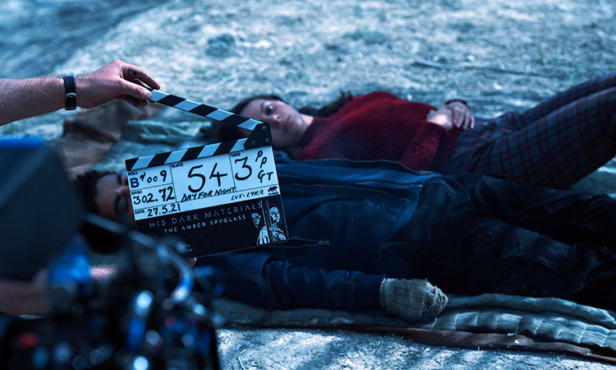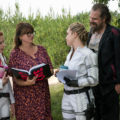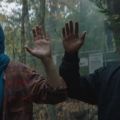The dark nights are drawing in, fairy lights adorn our streets and families are coming together around the TV. That can only mean one thing: Time for a war against Heaven and a trip to the Land of the Dead! Or, in other words, time for the return of His Dark Materials for its third and final series.
When we left them back in December 2020, Lyra (Dafne Keen) had been captured by her mother Mrs Coulter (Ruth Wilson), Will (Amir Wilson) was searching desperately for her, and Lyra’s father Lord Asriel (James McAvoy) was recruiting angels for his war on the Kingdom of Heaven.
Time has passed both within the show and in real life since we last met our heroes and anti-heroes. In fact, so much time has passed that when we met cast and crew in a screening room in London, Amir Wilson was sporting a beard (he asked if Will could have a beard in series three, and was quickly shot down).
For once, that filming hiatus wasn’t due to Covid, but was planned from the start. “Season three was always meant to be when Dafne and Amir were a bit older and we felt comfortable to explore the slightly more adult themes that are in the third book,” explains producer Dan McCulloch.
Wilson adds that “we wanted to bring a new Will, a more grown-up Will, a Will who has more of a sense of himself and a stronger character, he’s a stronger person.”
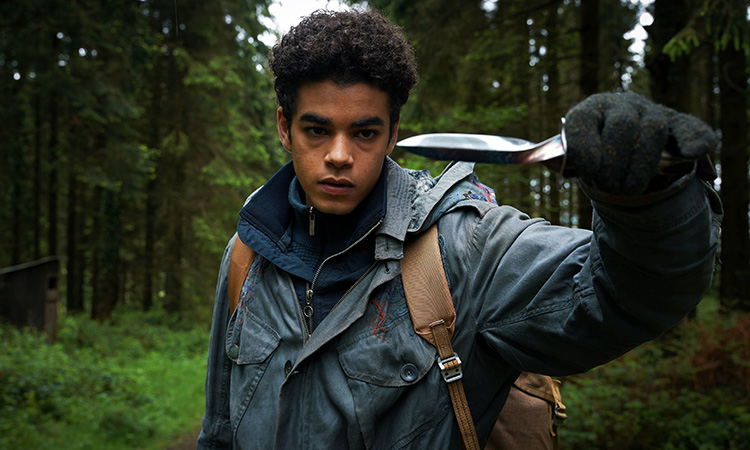
When work started on Series Three, producer Jane Tranter tells us that she received an apology from book author Philip Pullman for leaving her with ‘a pile of problems’. “I was like ‘oof, yeah, Mulefa, Gallivespians, angels’ and he said ‘no, I mean Asriel’.
“Asriel is this huge character in the book who is known about through reputation and people speaking about him, but he doesn’t actually appear until much later on. So we came up with the idea of seeing Asriel earlier than you see him in the book, in order to be able to see him build the Republic, so when you get to catching up to where he is in the book and what’s happening, you understand what his mission is, and what it’s all about, rather than having other people talk about it.”
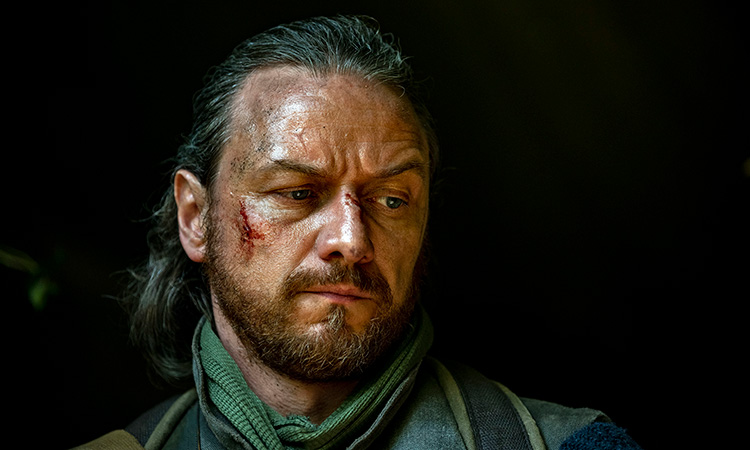
Which isn’t to say that the Mulefa and the angels didn’t pose a pile of problems too – although it was the angels who took the creative team most by surprise. Tranter tells us that the biggest challenge was taking these epic characters who talk about “the war in the Kingdom of Heaven and being thrown out and dark angels and the celestial nature of things,” but keeping them “within the [grounded] grammar of the show”.
The problems posed by the Mulefa were more financial, and therefore something Tranter and her team were very used to dealing with given their “radically smaller” budget compared to other big fantasy shows. The challenge since day one has been to make the show look a lot more expensive than it is, and much of that has been down to using clever sets and production design.
“People often assume that we spend most of our days in front of a green screen just because it’s a fantasy show and there are a lot of visual effects,” Wilson says, explaining that that’s not the case. Even the Land of the Dead was a huge set. “[I]t went up to 20 foot high walls and black sand as far as you could see. Once they got the smoke in and dimmed the lights it really felt like you were in the Land of the Dead.”
Anyone who has read the books will know that the real challenge of the final series is landing the ending. “I think that everything we have done across three seasons now has been to deliver us that ending in that way that Philip Pullman did,” Tranter says. “I hope we got it right. I hope we got the totality of it right, both in terms of the pain, and in terms of the reward of love and what that means.”
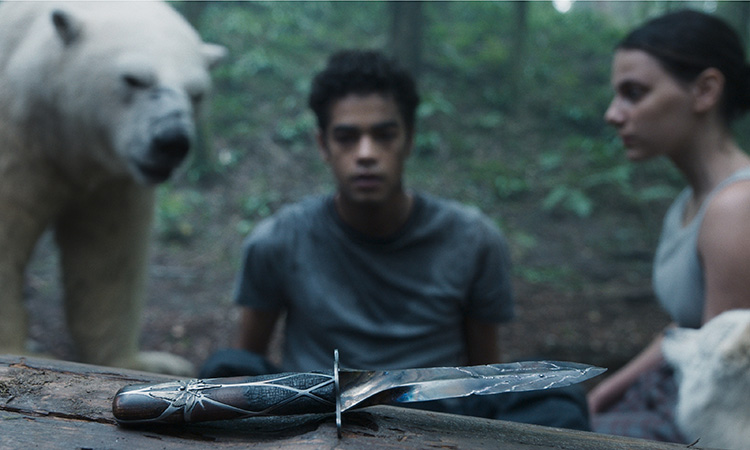
That theme of love is what Tranter thinks makes His Dark Materials perfect – if unlikely – Christmas viewing. The series, she says, is “all about love, different forms of love, and it’s about what you’re prepared to do for that love, and the sacrifices you might make. It’s also about what you’re prepared to do to protect freedom, freedom of speech, freedom of truth, freedom of creativity, freedom not to be taken over by an oppressive aggressor.
“Yeah, it’s tough stuff, but ultimately it’s a message of hope and of some form of renewal… So that for me feels like a good Christmas message.”
His Dark Materials Season Three will be released on 18 December. Read our review of the first two episodes here.
